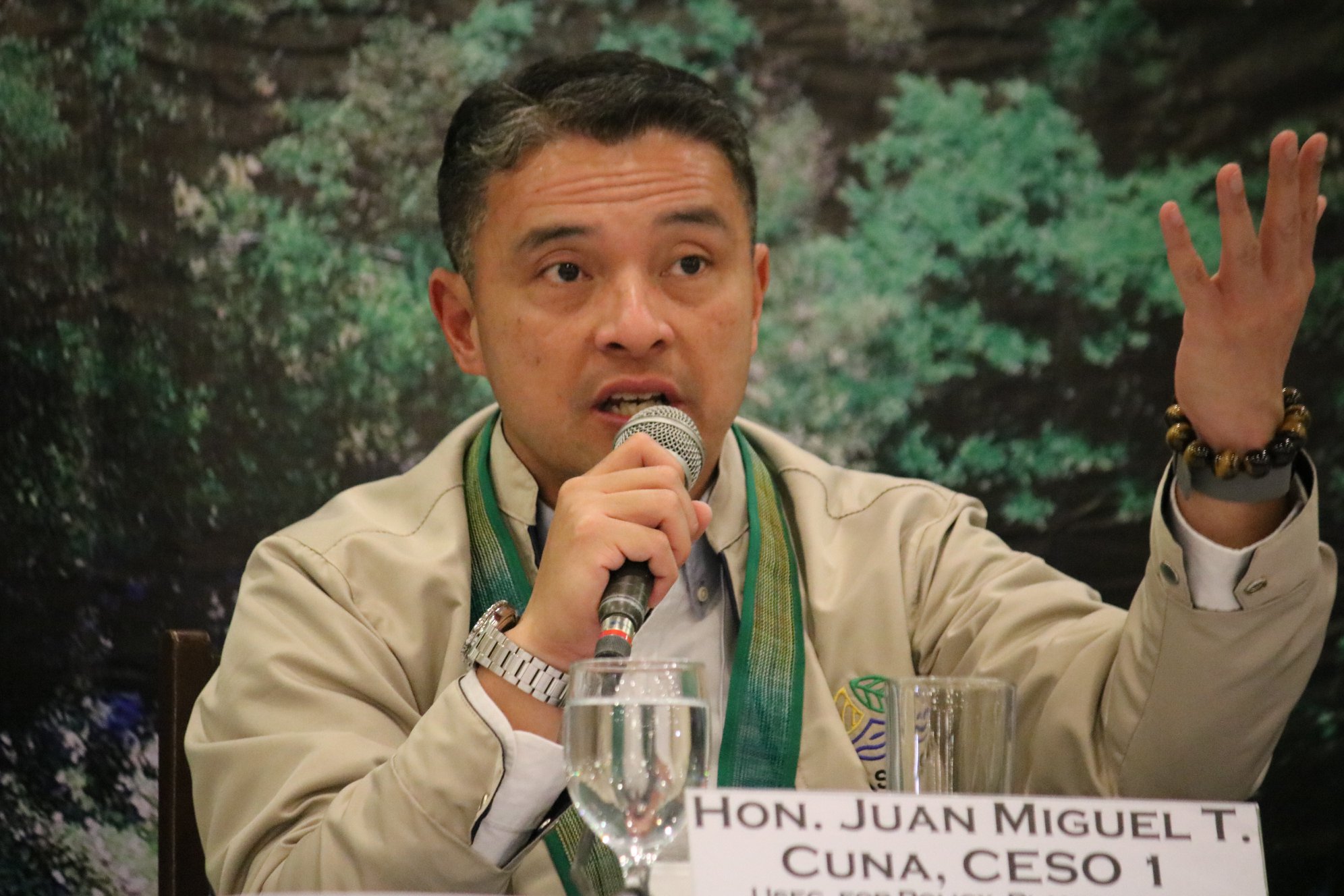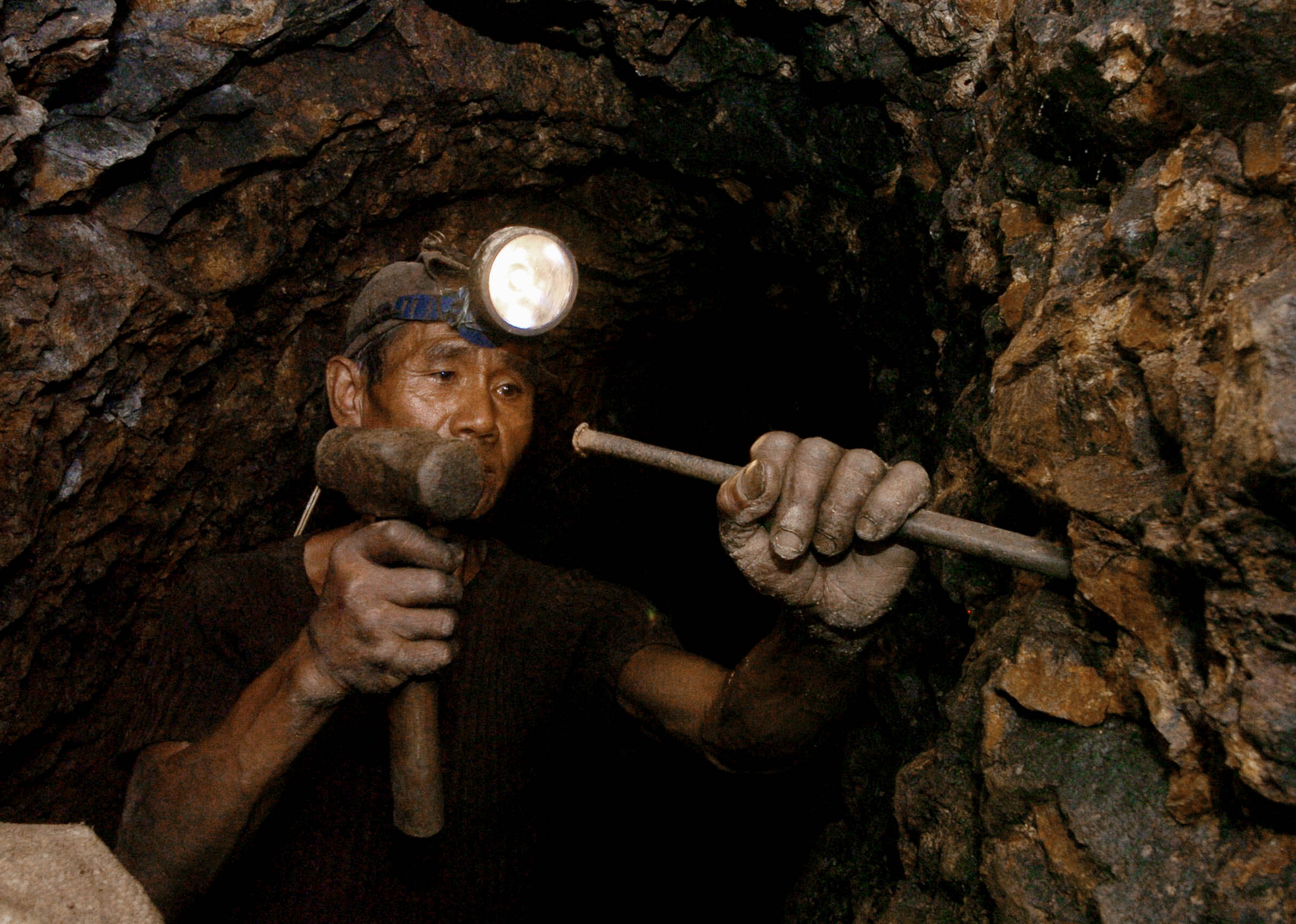DENR reviewing if suspended mining firms may resume operations soon
By Willard Cheng
MANILA – The Department of Environment and Natural Resources (DENR) is currently reviewing and validating if suspended mining companies have complied with regulations to see if they may now resume operations and provide employment.
This is one of the measures the agency is taking to push for “green economic recovery” amid the coronavirus disease 2019 (COVID-19) pandemic.

Environment Undersecretary Juan Miguel Cuna (Photo courtesy PIA)
Speaking in a virtual roundtable discussion, Environment Undersecretary Juan Miguel Cuna said the department is also already facilitating the declaration of “minahang bayan” in different provinces “where small scale miners will be allowed to operate legally and generate income while enabling the government to monitor and regulate their extractive activities.”
“For large scale mining companies, there are companies which have been suspended for quite a while and we are actually fast tracking already the review, the assessment and validation of these companies to determine if they are now compliant and will be eligible to resume operations to provide the much needed employment and revenue for both the national and local government,” Cuna said in the virtual roundtable discussion on the path to a green economic recovery post pandemic held by the Stratbase ADR Institute and Philippine Business For Environmental Stewardship (PBEST).
The DENR has also decided to adopt the “family approach modality” and depart from the usual practice of tapping people’s organizations in implementing activities under the National Greening Program.
Cuna said this would entail engaging local families where each family would be given a minimum of 5 hectares of forest land area to develop for a period of 5 years.

A worker hammers gold ore inside a mine in Itogon north of Manila, 26 March 2006. FP PHOTO Joel NITO (Photo credit should read JOEL NITO/AFP/Getty Images)
The agency expects around 60,000 families to benefit from seedling production, plantation establishment and first-year maintenance and production.
Each family will earn around P8,172 per month from seedling production, P3,633 from plantation establishment, and P1,033 from first-year maintenance and production.
Cuna said the projected income does reflect income per family that may be derived from cash crops, fruit trees, and other agricultural crops and livestock raised.
For harvesting of established plantations, 10,841 families are expected to benefit, with commodities including high-value crops, coffee, cacao, fruit trees, and bamboo.
To assist family beneficiaries in getting a reasonable price for their produce, they would be given assistance in market linkage and product development in coordination with other government agencies.
Cuna said the Forest Management Bureau is crafting guidelines for benefit sharing mechanisms and partnership with the private sector to ensure that plantations will be managed sustainably and partners will equitably get a share from benefits.
The DENR is also set to hire about 819 forest protection officers and 636 bantay gubat with a monthly salary of about P8,000 to 8,500 as part of efforts to intensify forest protection.
To manage health care infectious waste, the DENR is pushing for the establishment of more treatment, storage and disposal (TSD) facilities to treat hazardous waste and address concerns on hazardous waste management.
The DENR is stepping up the enforcement of existing laws and continuing wildlife protection programs, as well as proper wildlife handling protocols, and training more wildlife caretakers on health and safety measures.
The DENR is studying possible legislative actions, including the amendment of the ecological solid waste management act “to bridge the policy gap” between municipal waste management and health care waste management, the amendment of the wildlife act to strengthen mandatory quarantine protocols for confiscated animals and instituting greater penalties for poaching, trade and consumption of wild animals to prevent the spread of pathogens such as bacteria and viruses.
Dindo Manhit, president of Stratbase ADR Institute, called for a “whole of society approach” and spoke of the need to create jobs in the green sectors such as sanitation, energy, and tourism as part of a green economic recovery program. He said green investments and projects should also be encouraged.
Source: ABSCBN News


